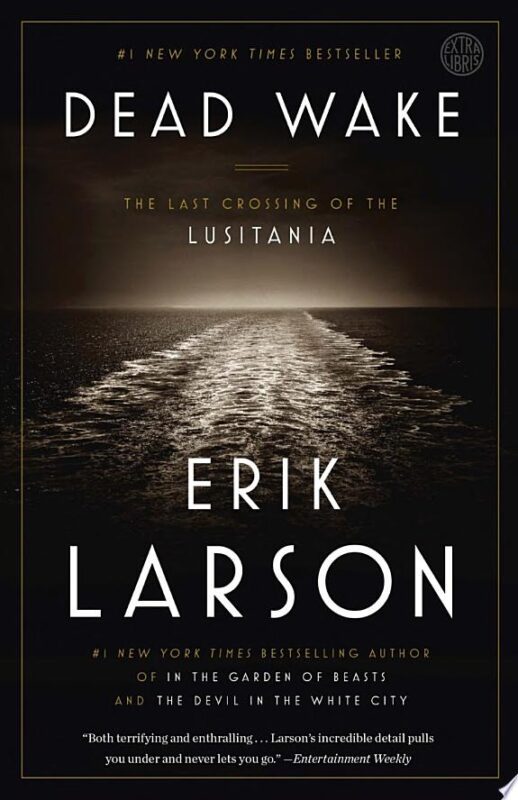Lusitania, Life Insurance, and “Who Died First”
– Part V
– Part V
Michael
Sean Quinn*
Sean Quinn*
(*See more
below)
below)
The sinking of the Lusitania
produced a number of legal actions–a goodly amount of litigation. This series of blogs discuss some of
them, principally those related to insurance problems and several in the same
ball-park as insurance, sort of: to wit, probate related cases, more or less. (Much of the rest of the litigation was handled before the Mixed Claims Commission, and it will be discussed in a later post.) The case described here is one from the highest court in New York State, and it
involves the sinking of the Lusitania, life insurance, and a probate problem.
produced a number of legal actions–a goodly amount of litigation. This series of blogs discuss some of
them, principally those related to insurance problems and several in the same
ball-park as insurance, sort of: to wit, probate related cases, more or less. (Much of the rest of the litigation was handled before the Mixed Claims Commission, and it will be discussed in a later post.) The case described here is one from the highest court in New York State, and it
involves the sinking of the Lusitania, life insurance, and a probate problem.
The case is McGowin v. Menken, 119 N.E. 877 (N.Y. 1917). In it a married couple,
the Tassons (“H” and “W”), perished in
the sinking of the Lusitania. At that time, H had three life insurance policies
each to be paid to W, if living, but if not then to his executors,
administrators, or assigns. The life insurer paid the money into the court
since it was not sure what should be done under New York law. The problem was that W’s estate said it had a
claim too.
the Tassons (“H” and “W”), perished in
the sinking of the Lusitania. At that time, H had three life insurance policies
each to be paid to W, if living, but if not then to his executors,
administrators, or assigns. The life insurer paid the money into the court
since it was not sure what should be done under New York law. The problem was that W’s estate said it had a
claim too.
But under the express terms of the
policy, if survivorship cannot be proved, the payment of the policy goes to the
estate of the policyholder. The court does not say so specifically, but the
right way to do this is under contract law. Life insurance policies are
contracts. W was not a party to the contract, and H had a right under the
contract to change the beneficiary(ies) as he saw fit. Hence the insurer had a contract duty to pay
the monies due under the contract in accordance with it, namely, to the estate
(or administrators thereof). W had no property interest in assets related to
the contract, so neither she nor her estate had any right to the proceeds.
If there was an attorney representing the party, surely he–for then it was almost certain to be “he”–would have advised them to have a provision in the policy or in H’s will that, if it could not be determined who died first, it was to be that he should be regarded as dying first.
policy, if survivorship cannot be proved, the payment of the policy goes to the
estate of the policyholder. The court does not say so specifically, but the
right way to do this is under contract law. Life insurance policies are
contracts. W was not a party to the contract, and H had a right under the
contract to change the beneficiary(ies) as he saw fit. Hence the insurer had a contract duty to pay
the monies due under the contract in accordance with it, namely, to the estate
(or administrators thereof). W had no property interest in assets related to
the contract, so neither she nor her estate had any right to the proceeds.
If there was an attorney representing the party, surely he–for then it was almost certain to be “he”–would have advised them to have a provision in the policy or in H’s will that, if it could not be determined who died first, it was to be that he should be regarded as dying first.
***************
For those having any interest in
this matter, one of the cases the court cited is Hildenbrandt v. Ames, 66 S.W. 128 (Tex. Civ. App.—1901, writ
refus’d), a storm case.
*************
I have been suggesting that Lusitania litigation exemplified a significant departure from established, “classical,” legal thinking. Many observe that World War I had an enormous cultural impact and was one of the dawns of the modern age. This case is a standard example of the then current, traditional legal thinking.
Michael Sean Quinn, Ph.D.,
J.D., c.p.c.u. . . .
J.D., c.p.c.u. . . .
The Law Firm of Michael Sean Quinn et
Quinn and Quinn
1300 West Lynn Street, Suite 208
Austin,
Texas 78703
Texas 78703
(512)
296-2594
296-2594
(512)
344-9466 – Fax
344-9466 – Fax





Recent Comments